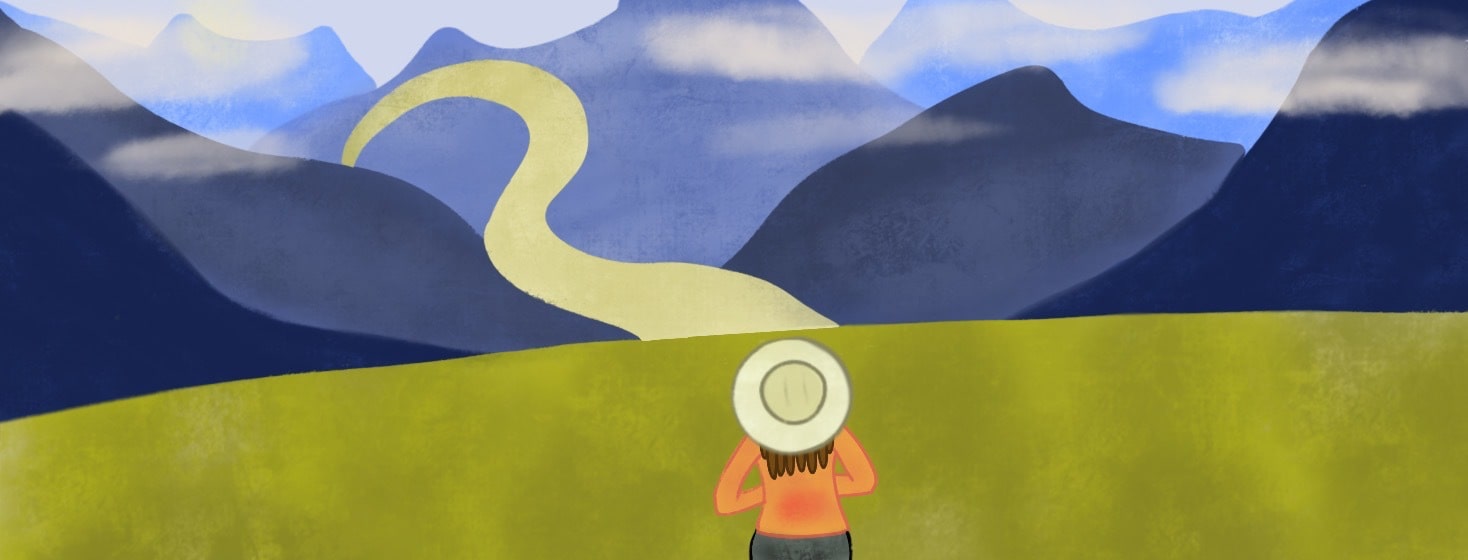Is it a Flare-Up or High Elevation?
Every winter break, my husband and I head for the hills. Nice, forested, rolling hills draped with snow. We love cross-country skiing in the Rocky Mountains west of Denver, in Vermont, or near Lake Tahoe in Northern California. We’ve been doing it for 5 years now.
But it hasn’t always been a walk in the national park for me. On many of these trips, my IBS symptoms make some noise. Usually, it’s a grumbly tummy, bloating, and constipation. I have IBS-A (also called IBS-M), so these are pretty common issues for me. Less common is constant farting! It’s like, where is all this gas coming from? Good thing my husband and I have been together three decades, so we accept that farts happen…!
This year, though, it was particularly irksome. So, I turned to Google to search on “constant farting.” Of course, Google picked up on my location – and served up articles on digestive problems and altitude sickness.
To quote Gru from “Despicable Me” (one of our favorite movies): LIGHT BULB.
High altitude sickness and IBS
Just about everywhere we go to cross-country ski is at high altitude: This year, we’ve been in a part of Colorado at more than 8,600 ft. in elevation (Note: I’m using “altitude” and “elevation” interchangeably, although to people like pilots, the words mean different things).
When you say altitude sickness, most people – including me – think of headache, shortness of breath, maybe some nausea or vomiting. I learned, though, that high altitude can also aggravate diarrhea or constipation, and cause “intestinal gas” – i.e., bloating and increased farts. There’s actually a cute name for it: locals call it the “’tude toots.”
From what I understand, it’s about physics: As you go up in elevation, atmospheric pressure decreases. So, air can expand. The example I read explains it this way:
Think of the highest place on Earth—Mt. Everest. The atmospheric pressure at the Mt. Everest base camp (just halfway up the mountain!) at ~15,000 ft is half that of sea level. Dallas, where I live, is just 400 ft above sea level, to put it in perspective.
If I filled a balloon with 1 liter of air in Dallas and took it up to the Mt. Everest base camp, the balloon would expand to 2 liters in size.
Now imagine that same thing happening with the air in your gut – this is the main reason we feel bloated at high altitude, and our body is trying to release that pressure via any means necessary…!
This or That
Would you rather vacation in the mountains or the beach?
What were my coping strategies?
Hydration
It’s easy to get dehydrated at altitude, and dehydration just makes constipation worse. Plus, I was very active, exercising for 2.5-3 hours a day. So, I carried and drank water with dissolved Nuun electrolyte tabs OR Vitamin C supplements all the time. I admit that I drank a lot of Diet Coke, too; it’s not at all hydrating, but caffeine helps rev me up in the morning (and sometimes helps with my constipation, too).
Avoiding fatty foods
OK, well, this was hit or miss. Fatty foods can sometimes be an IBS trigger for me. But when I’ve been out cross-country skiing at 8,600 ft and 13o F, I don’t exactly crave salads afterwards. My body wants nutrient-dense foods like stews, pizza and pasta. I had bangers and mash (an English pub dish of sausages and mashed potatoes) one night and, while it really hit the spot at the time, the next morning I felt like a big bloated sausage myself!
Fiber
This is a challenge when you’re craving meat, not veggies, as noted above. My compromise: whole fruit. In addition to my normal regimen of fiber supplements, I ate at least one apple a day. Now, apples bother some people’s guts, but I can handle Granny Smiths pretty well. Plus, we ate steel-cut oatmeal every morning for breakfast. And we did have an occasional salad with dinner.
These strategies helped but didn’t completely solve everything. My jeans were uncomfortably tight, and there were definitely evenings when I broke a sweat trying to pass rabbit pellets! But just having a reason behind the symptoms helped me relax about it – these weren’t really flare-ups. Mountains just gas me up!
Do you have IBS and live at a high elevation? What’s your experience?

Join the conversation